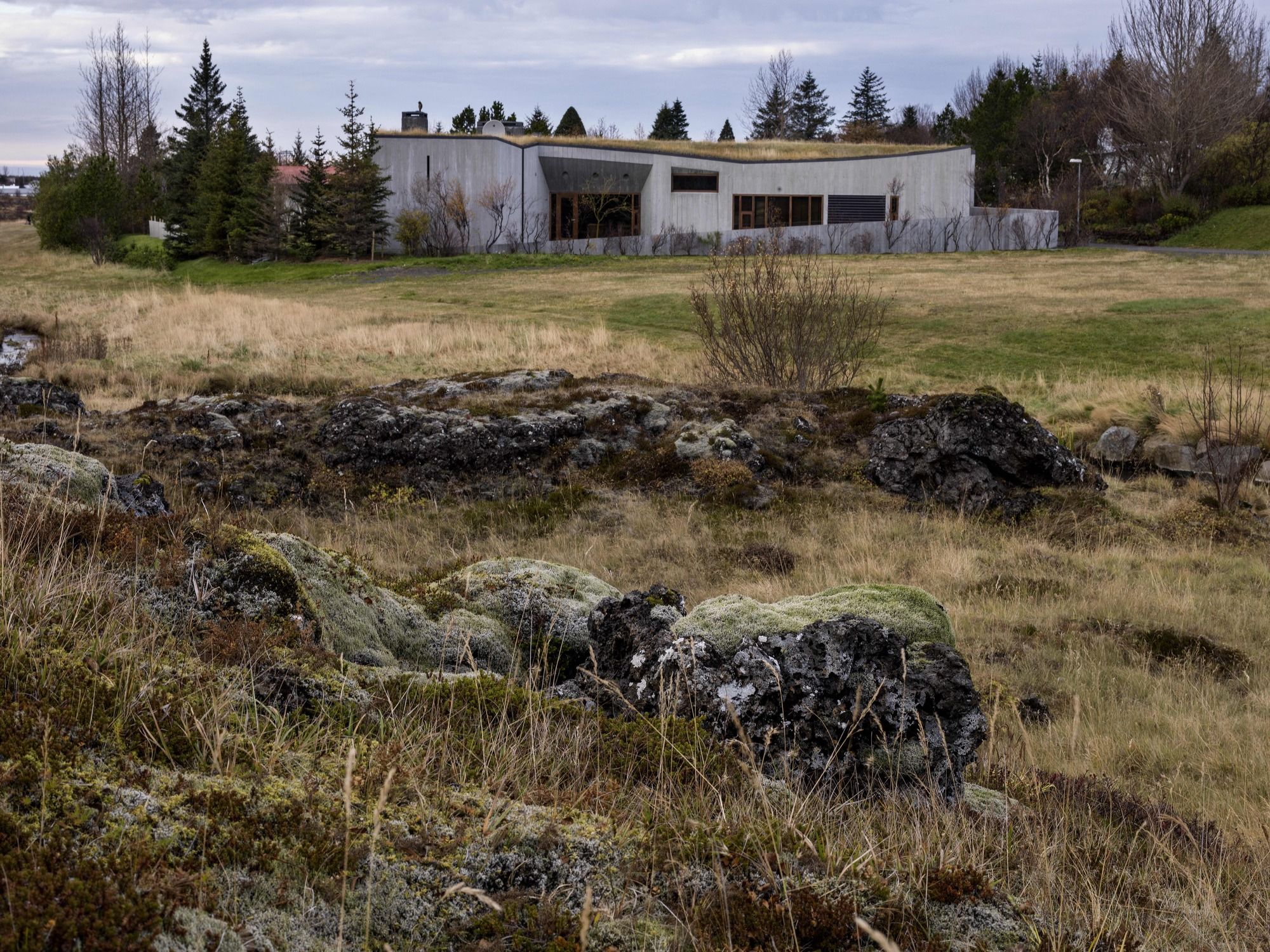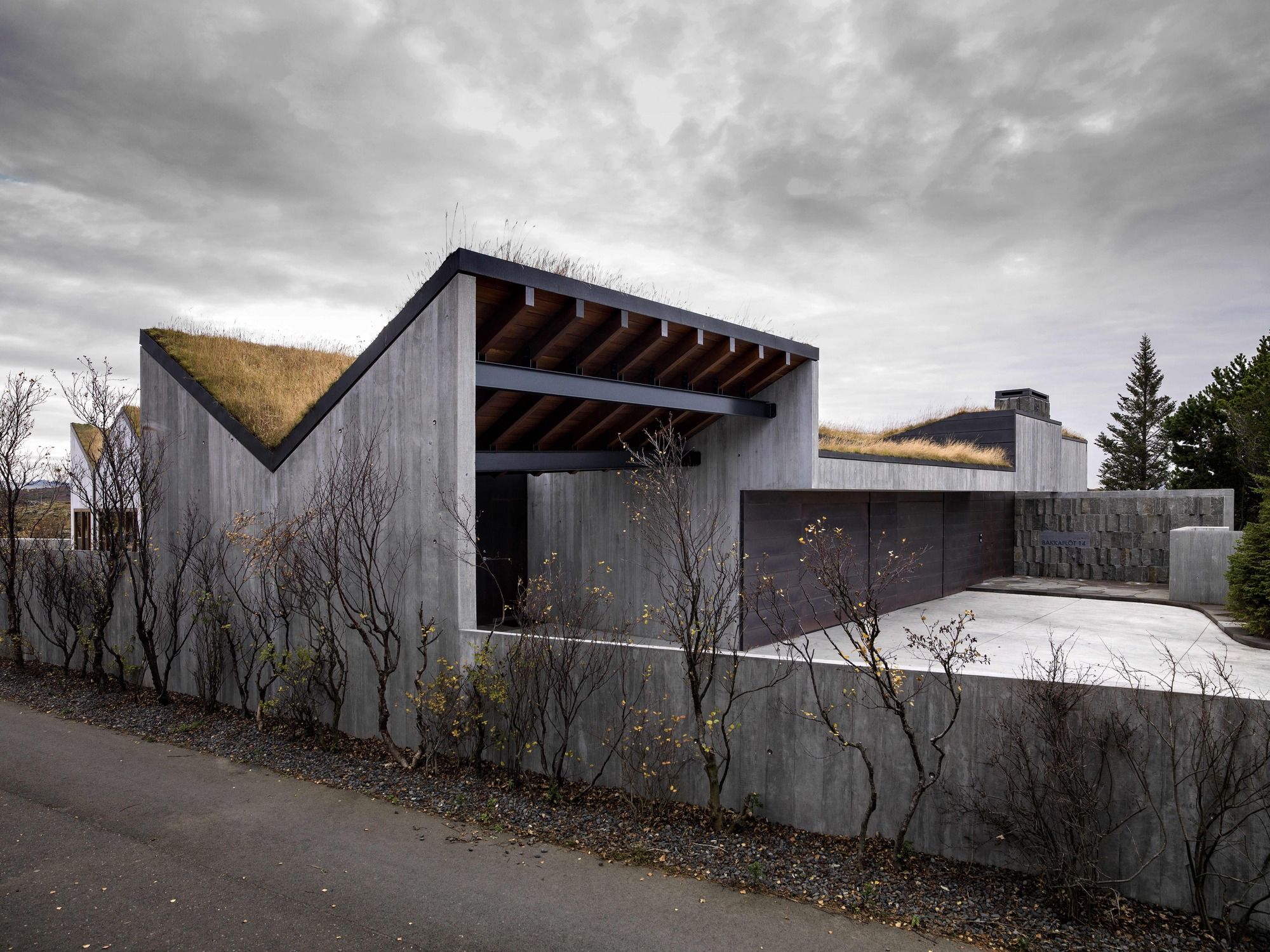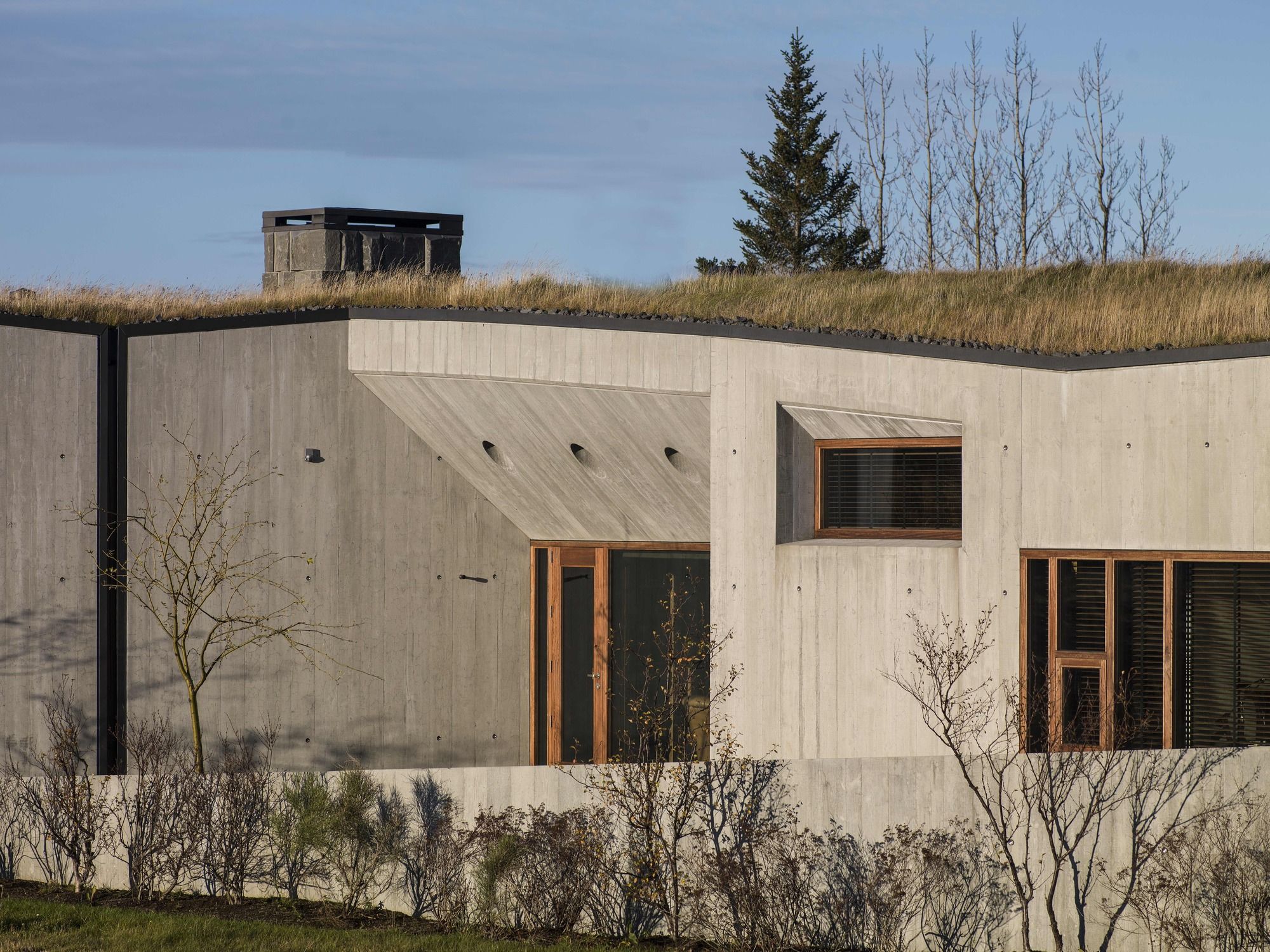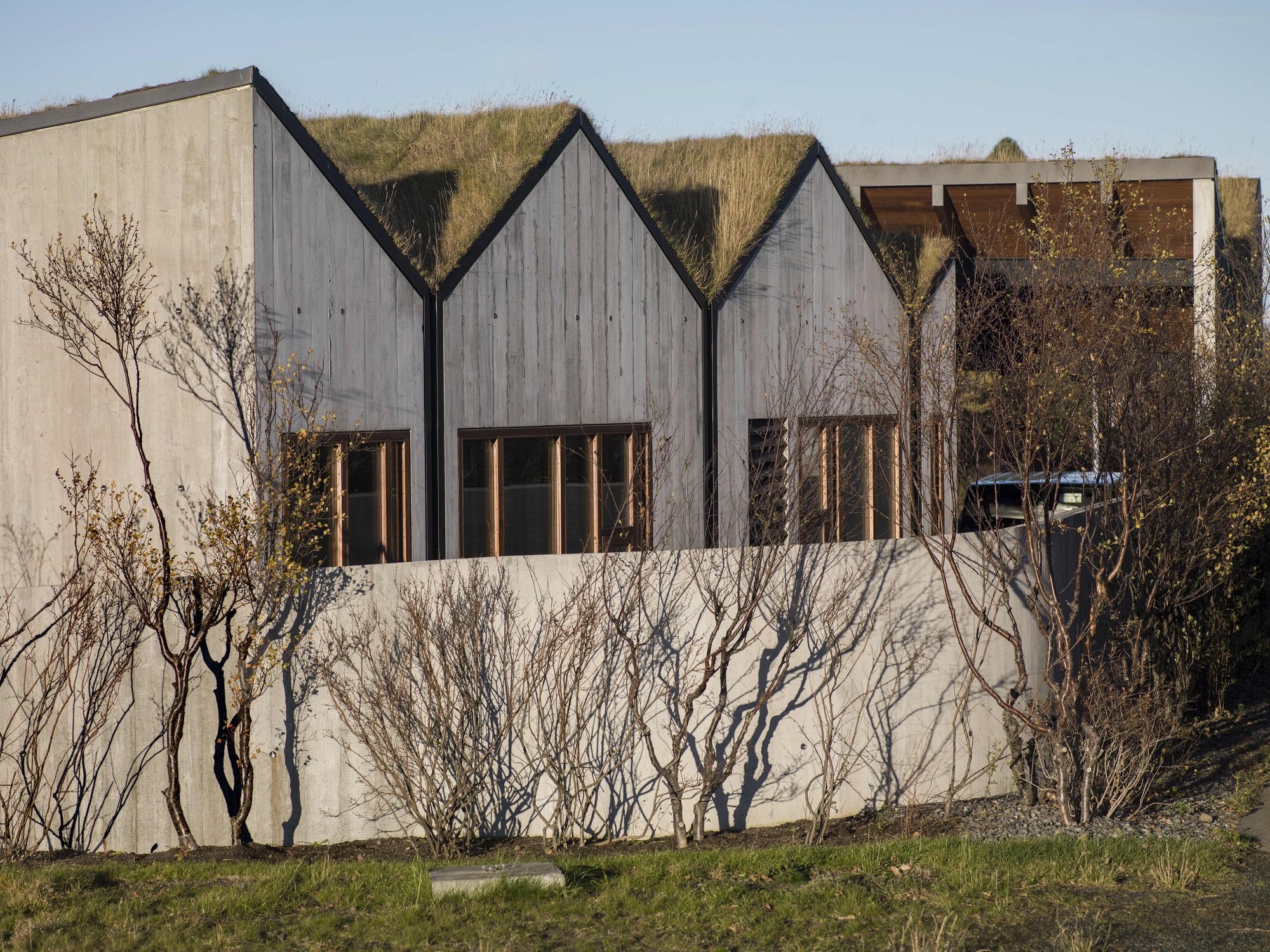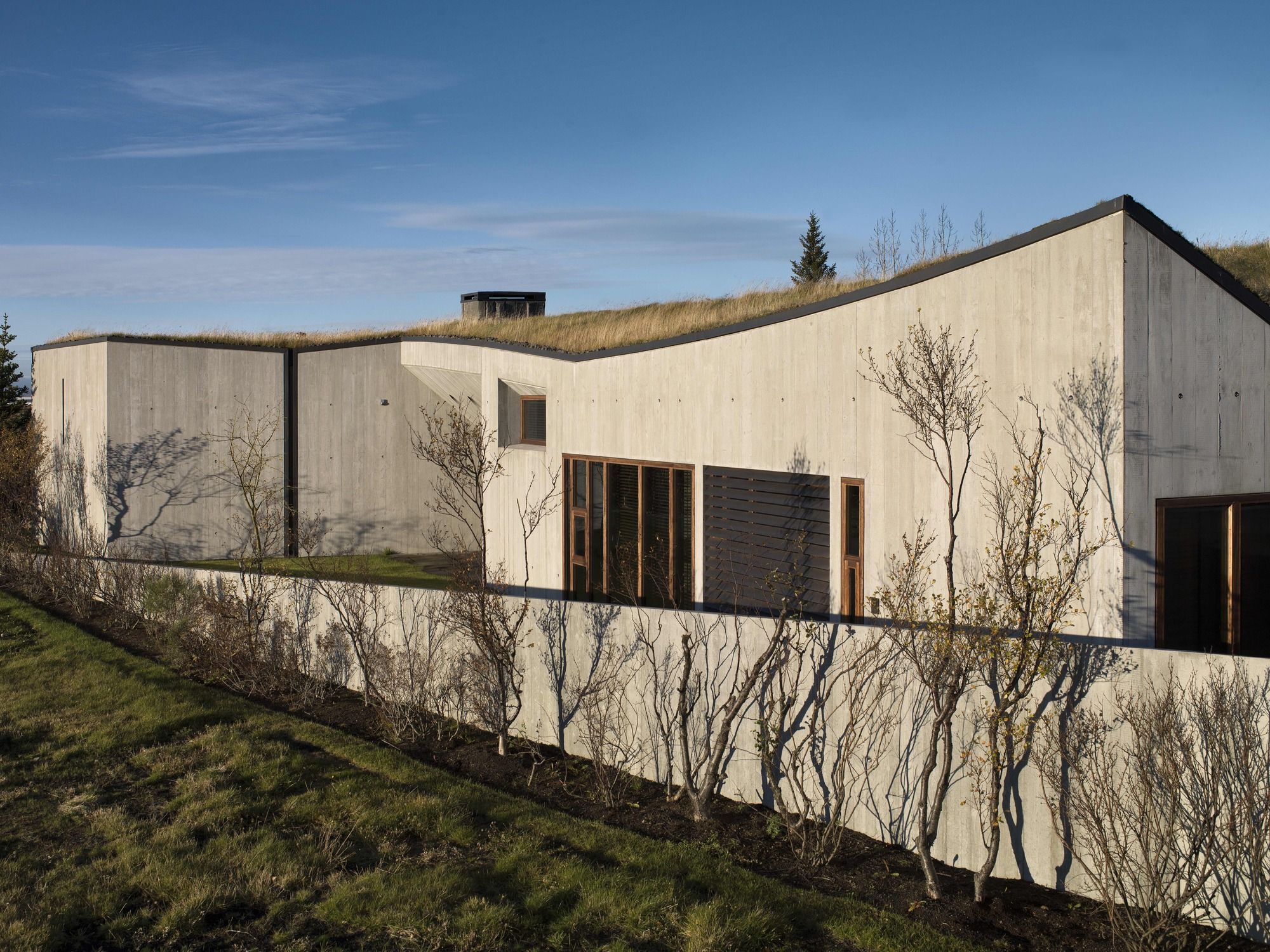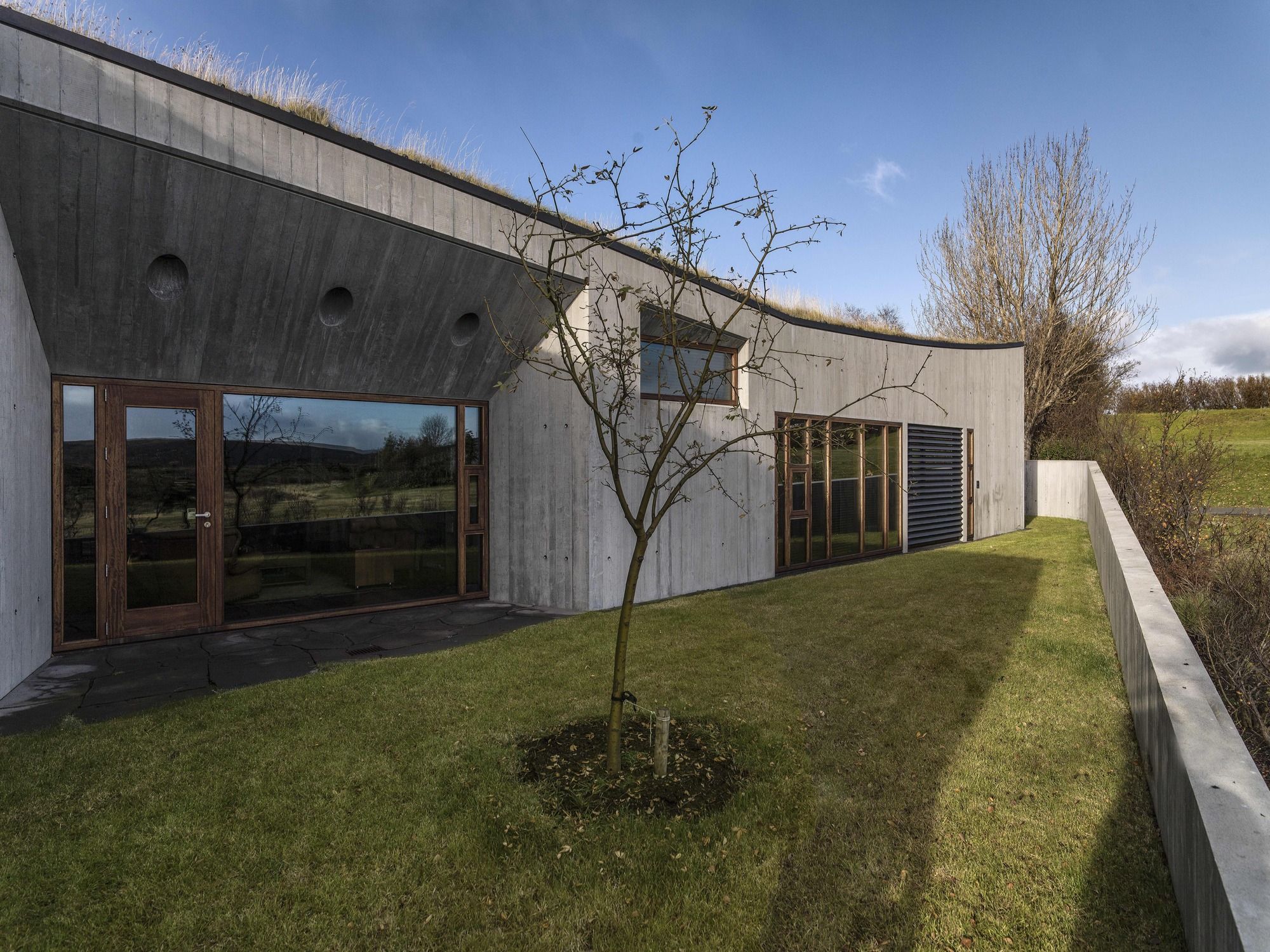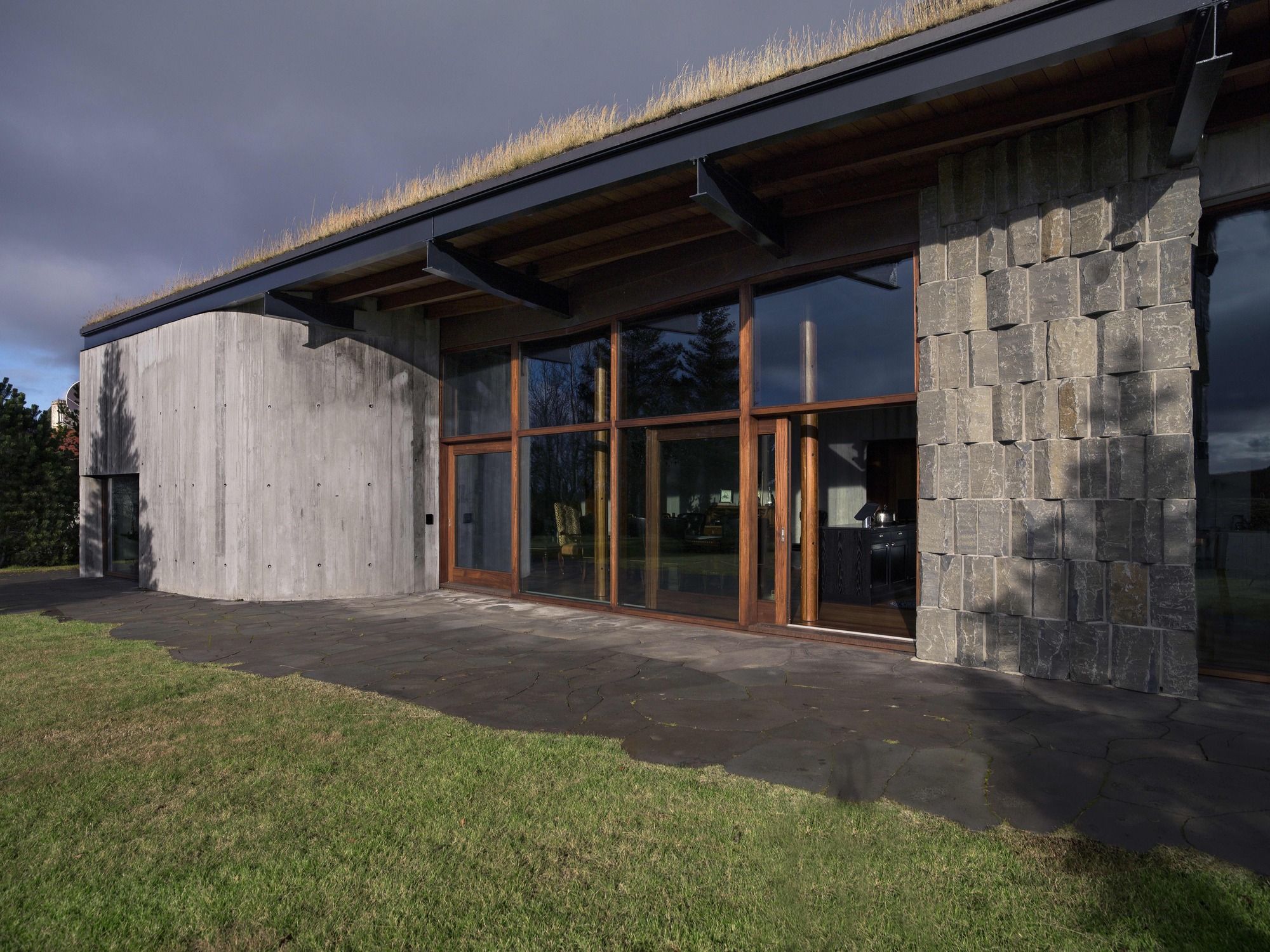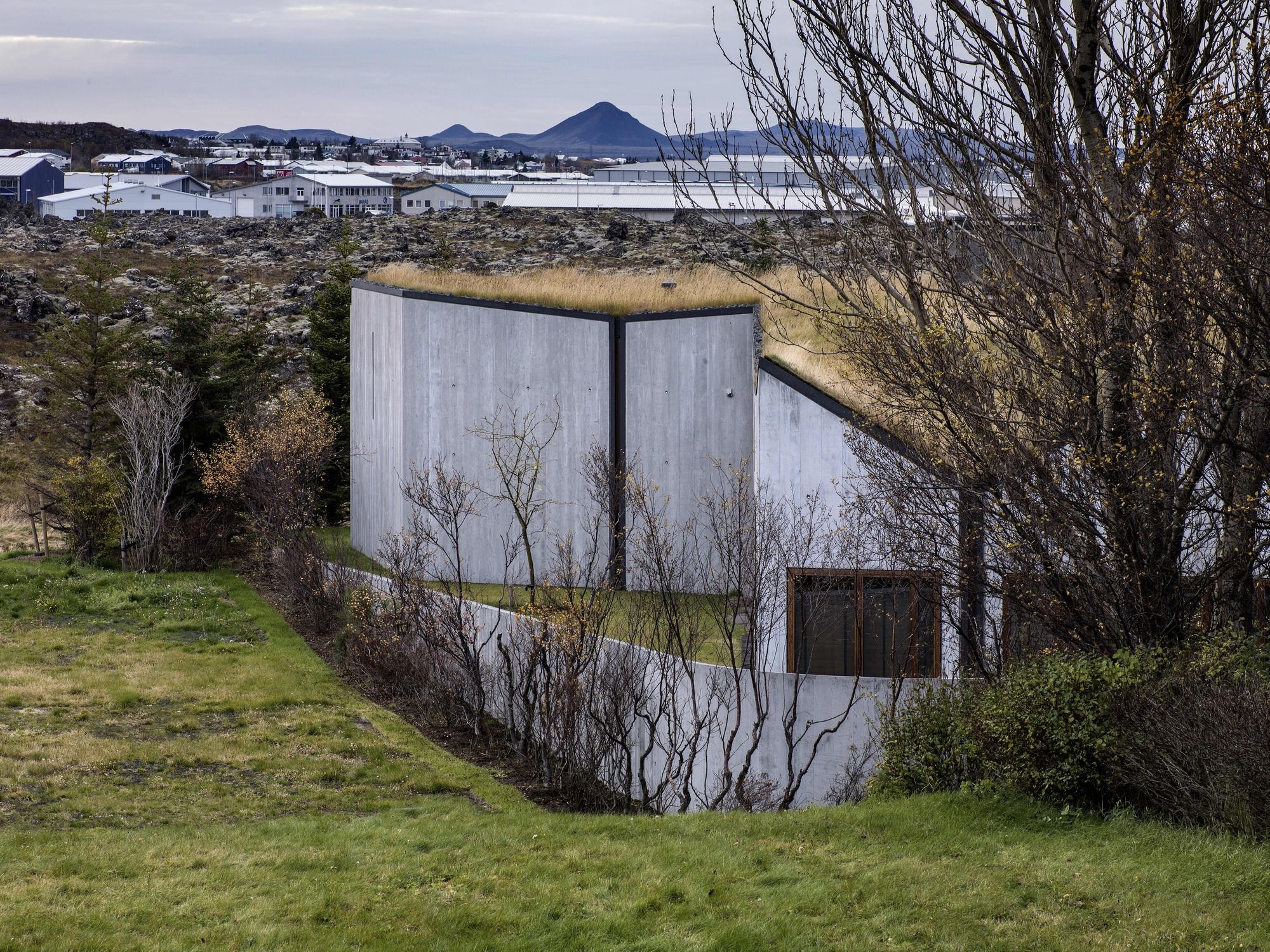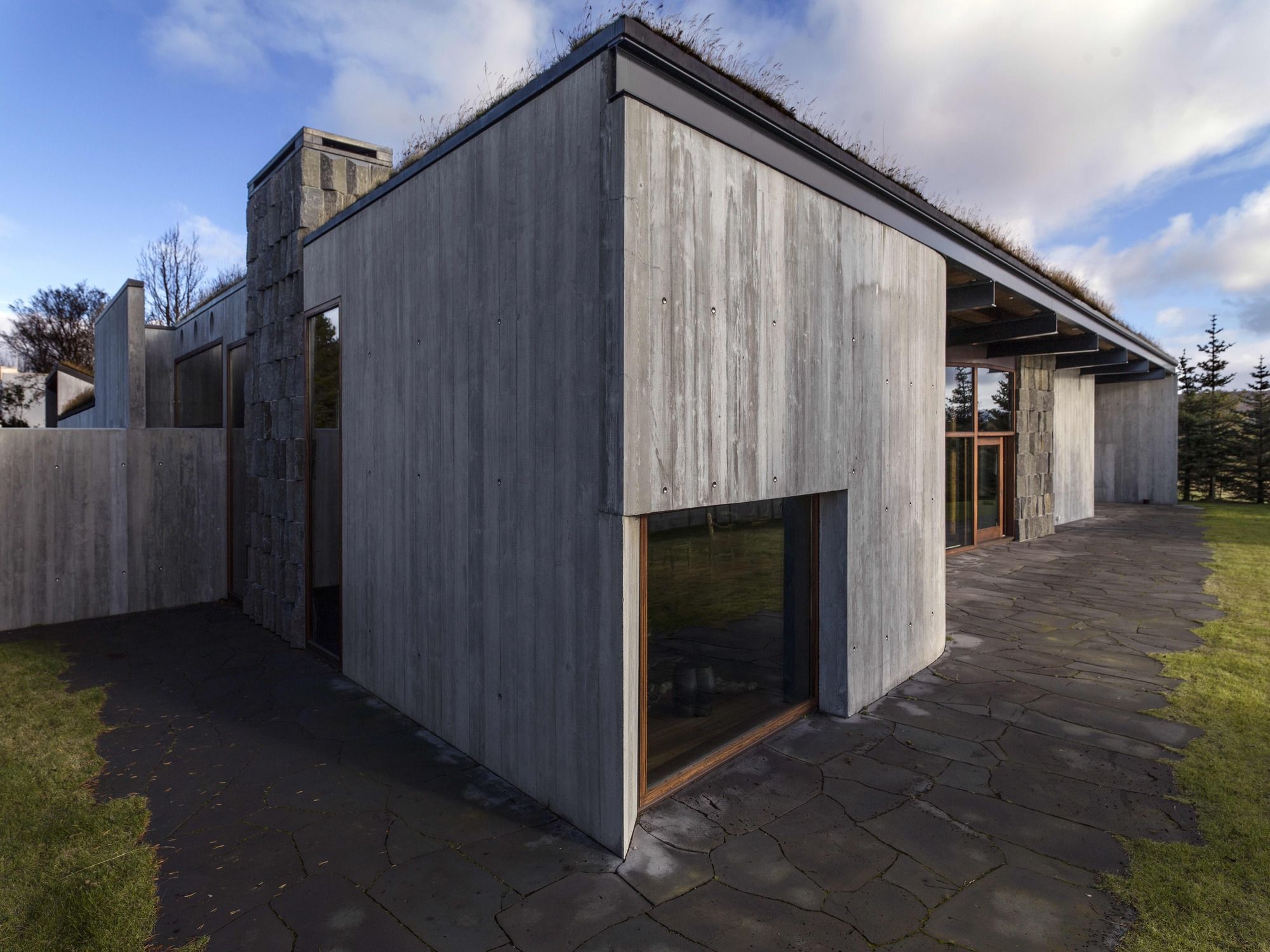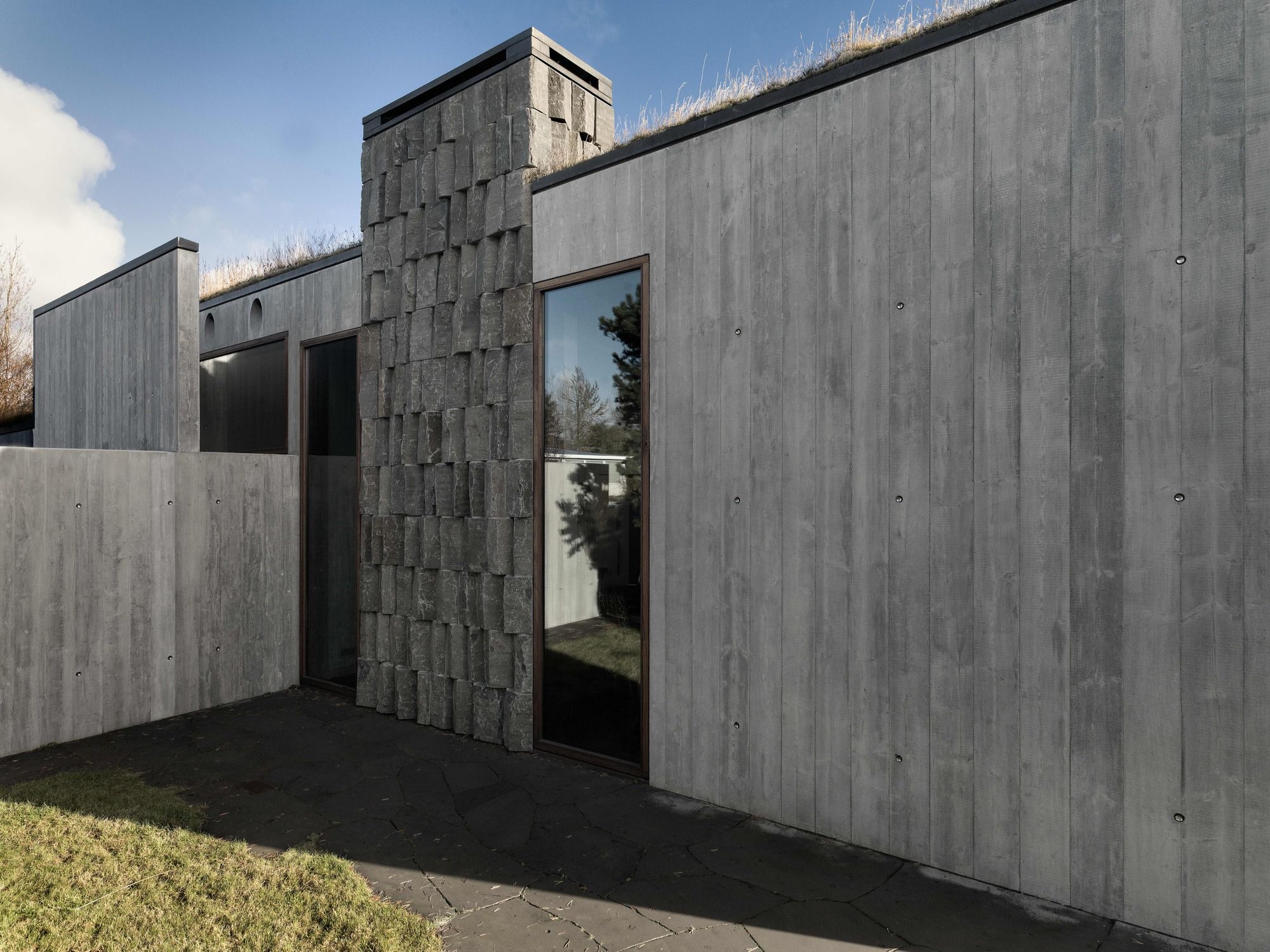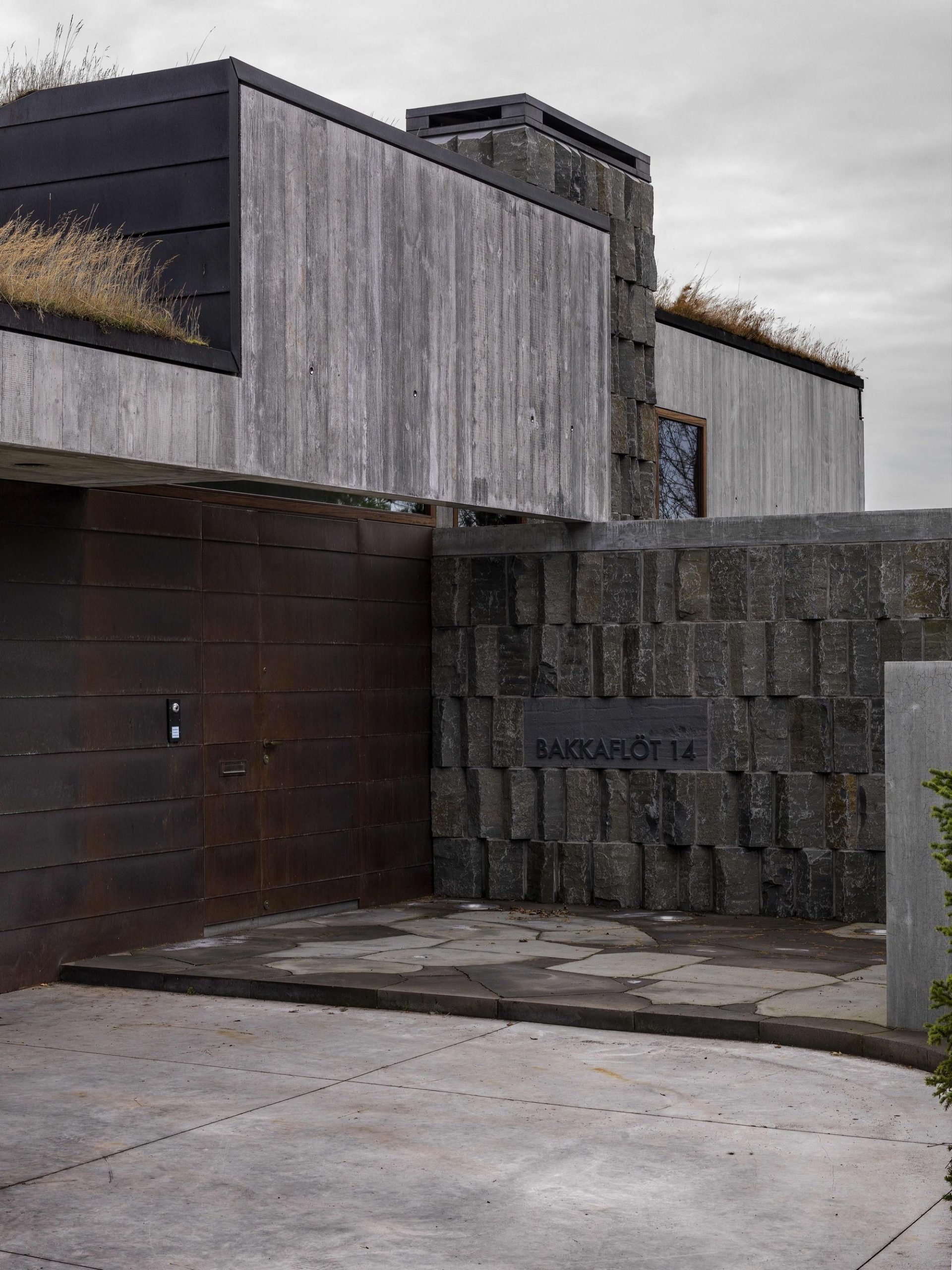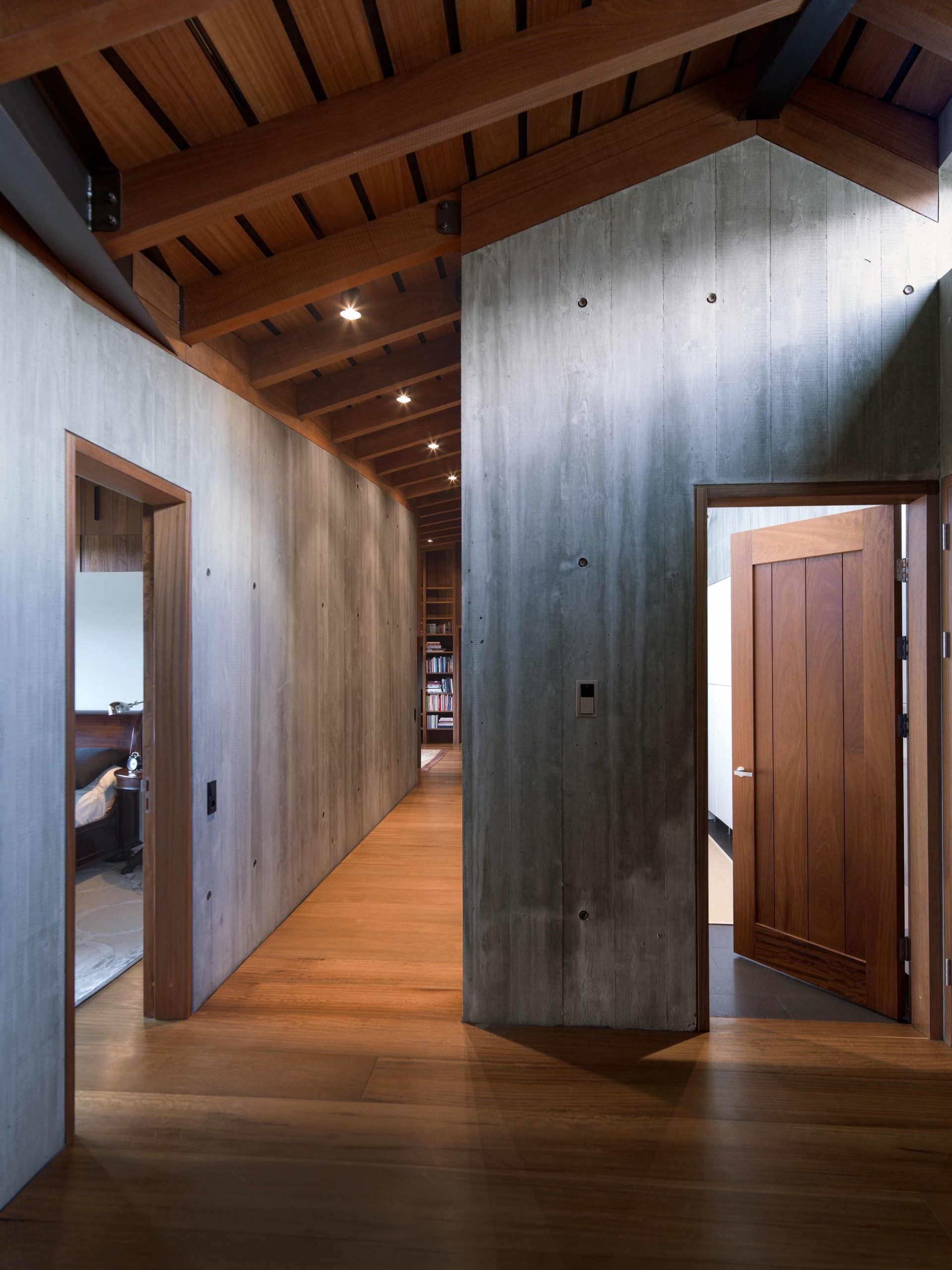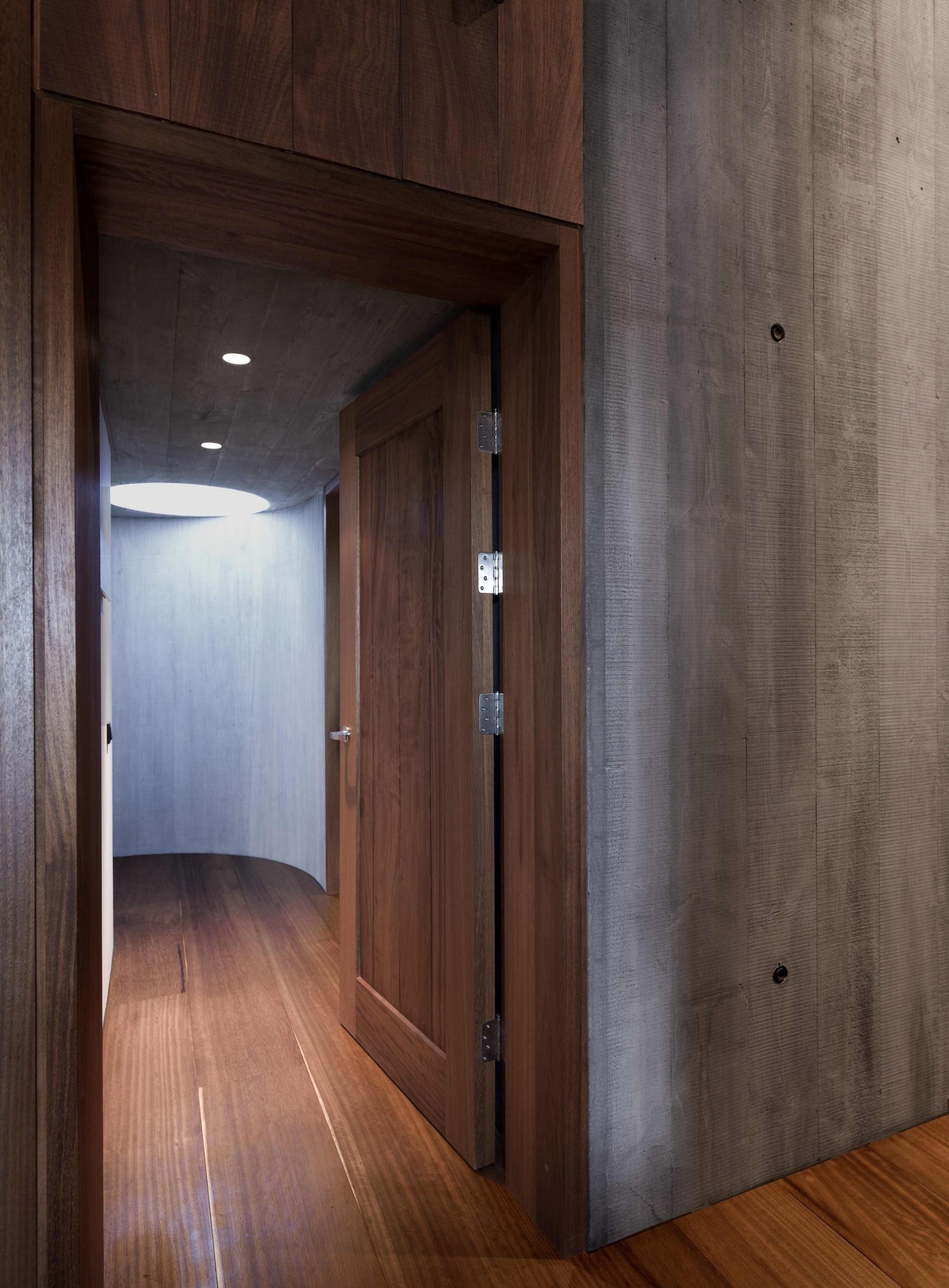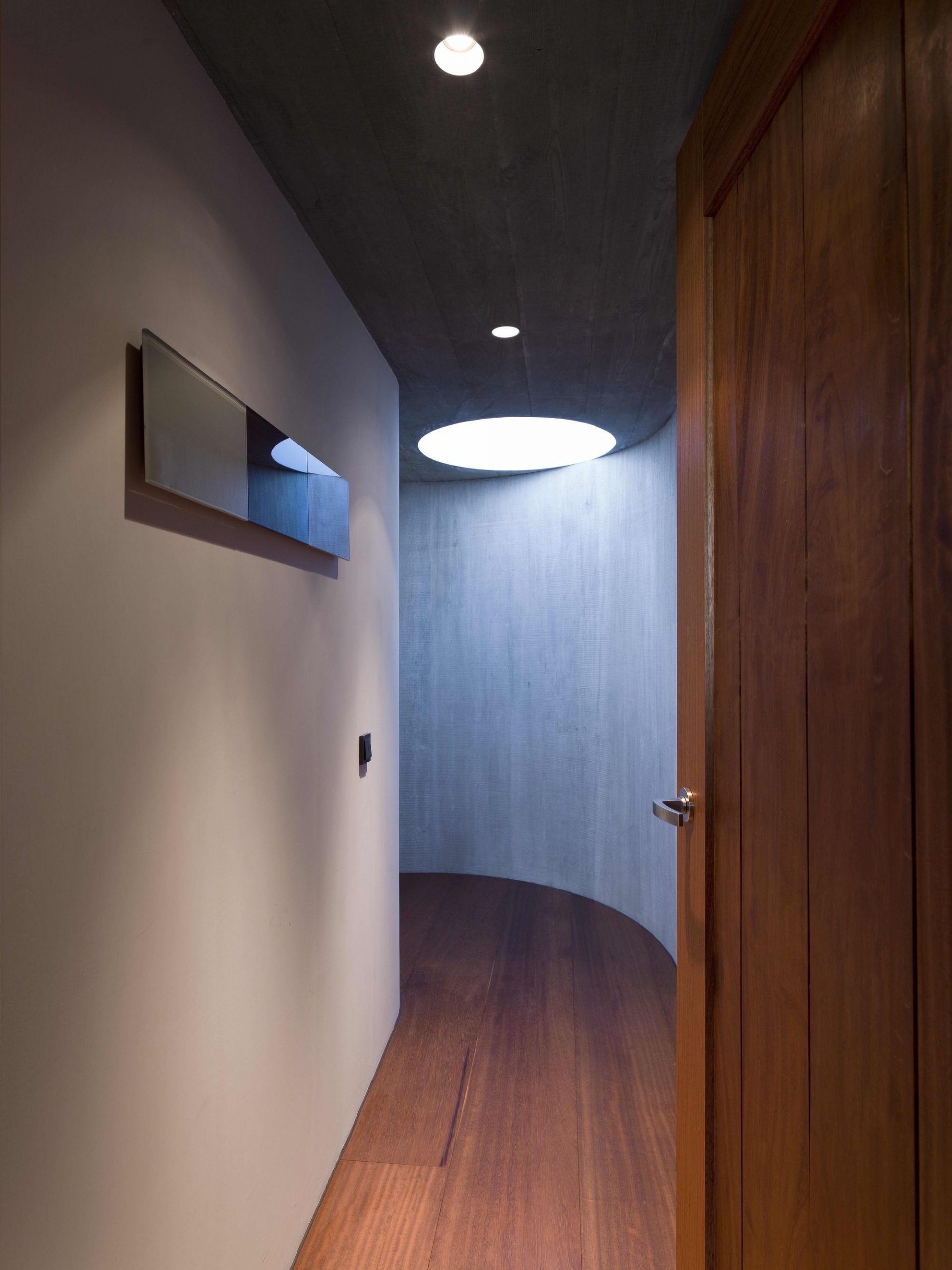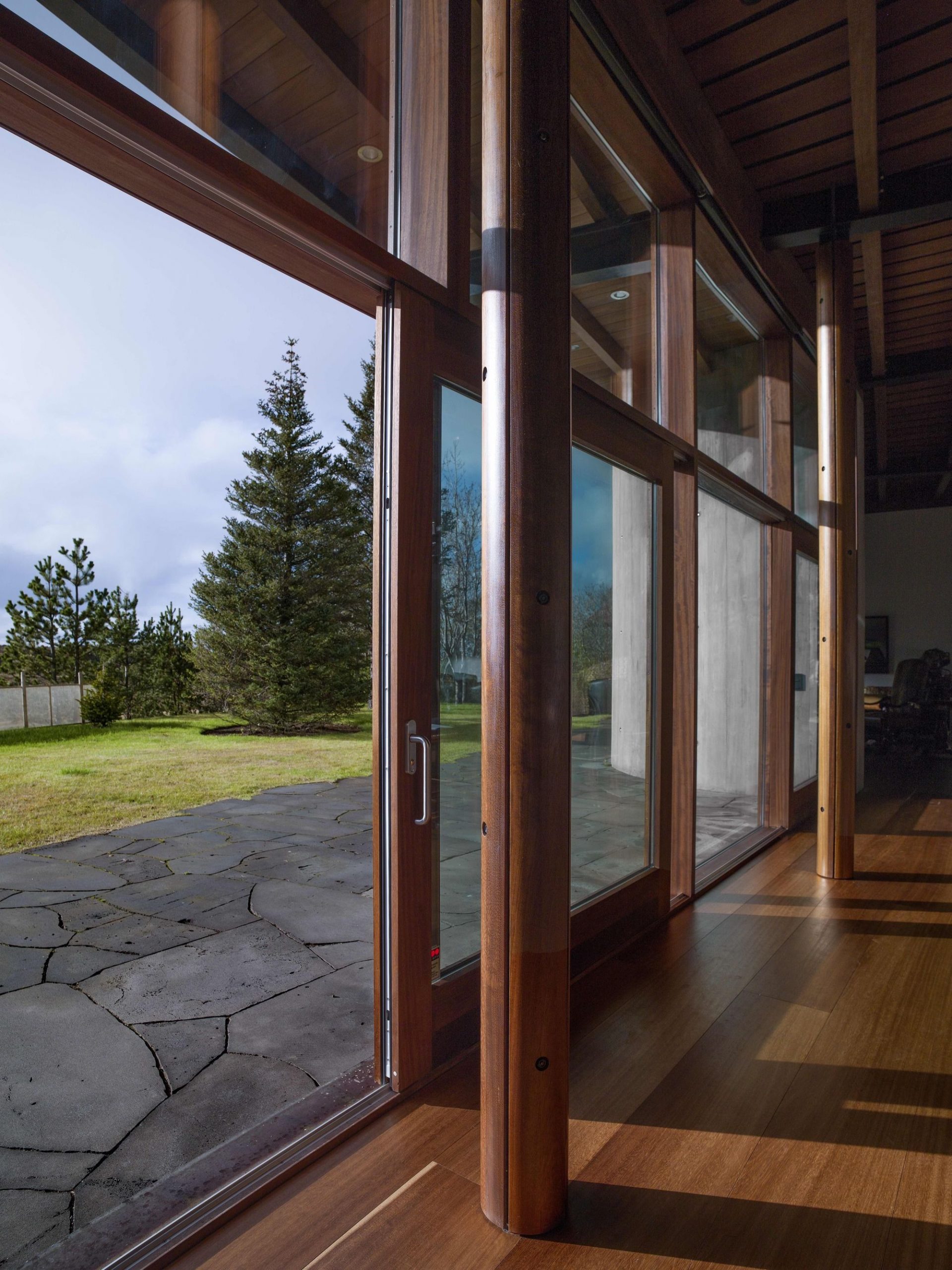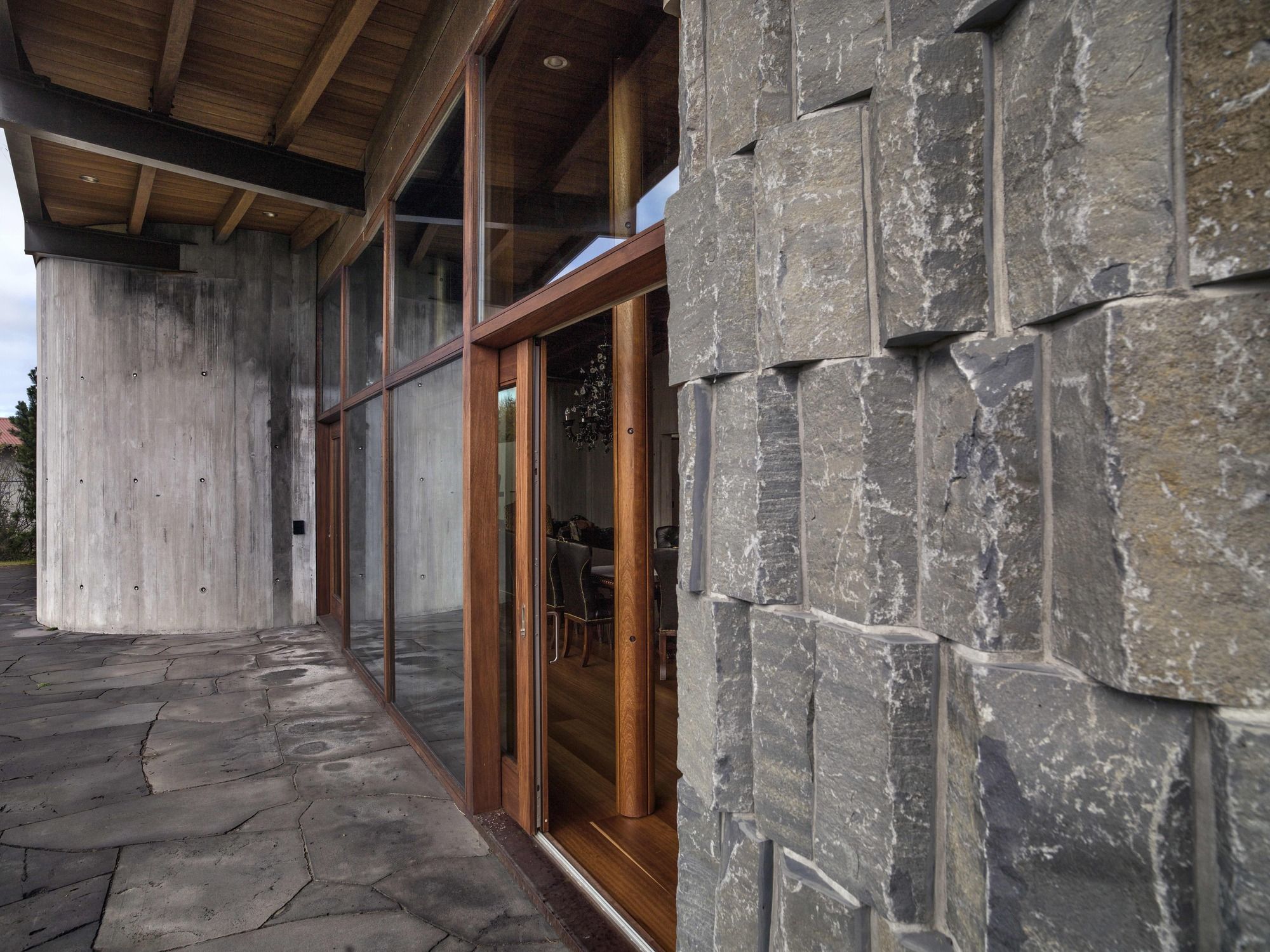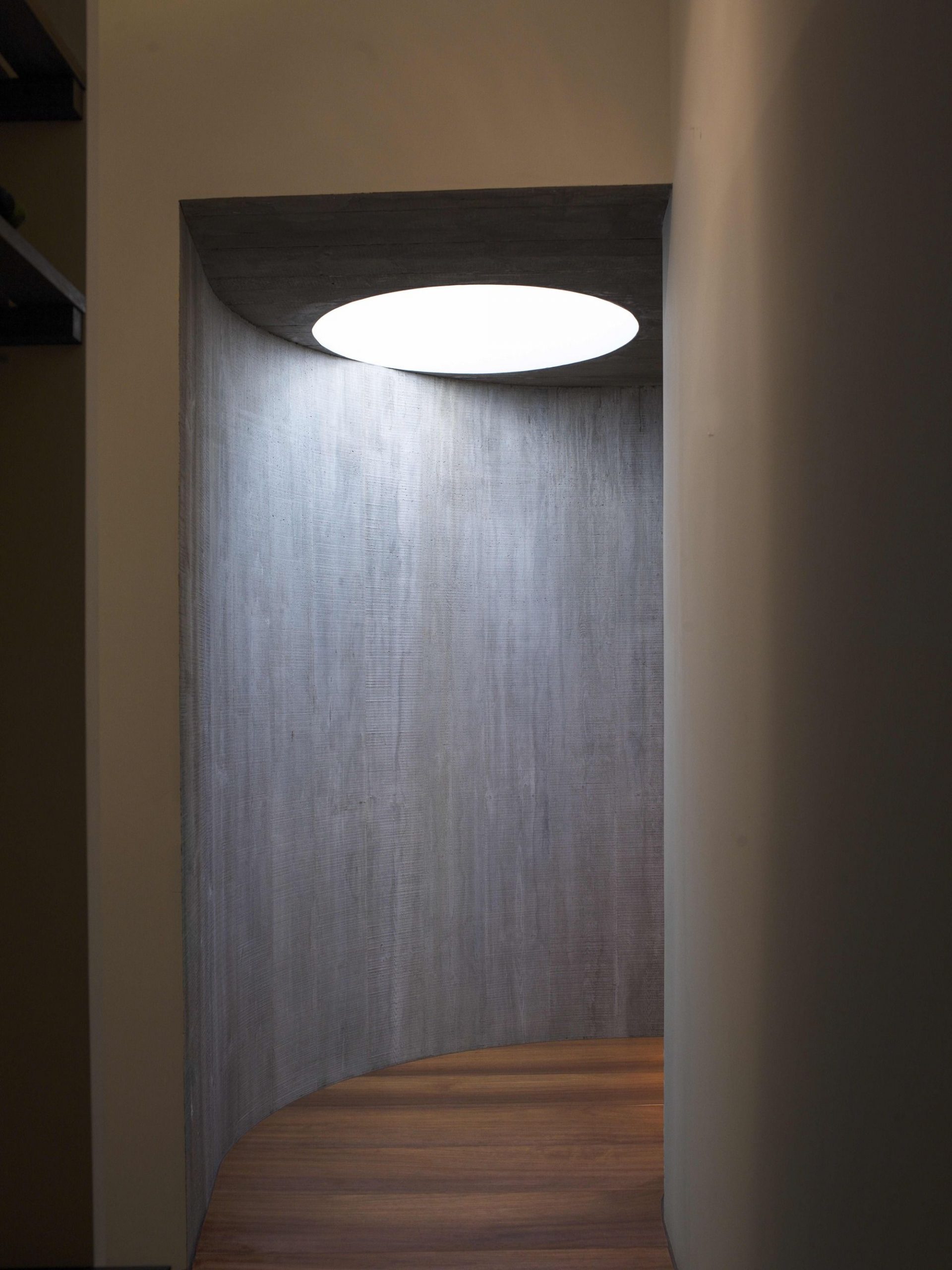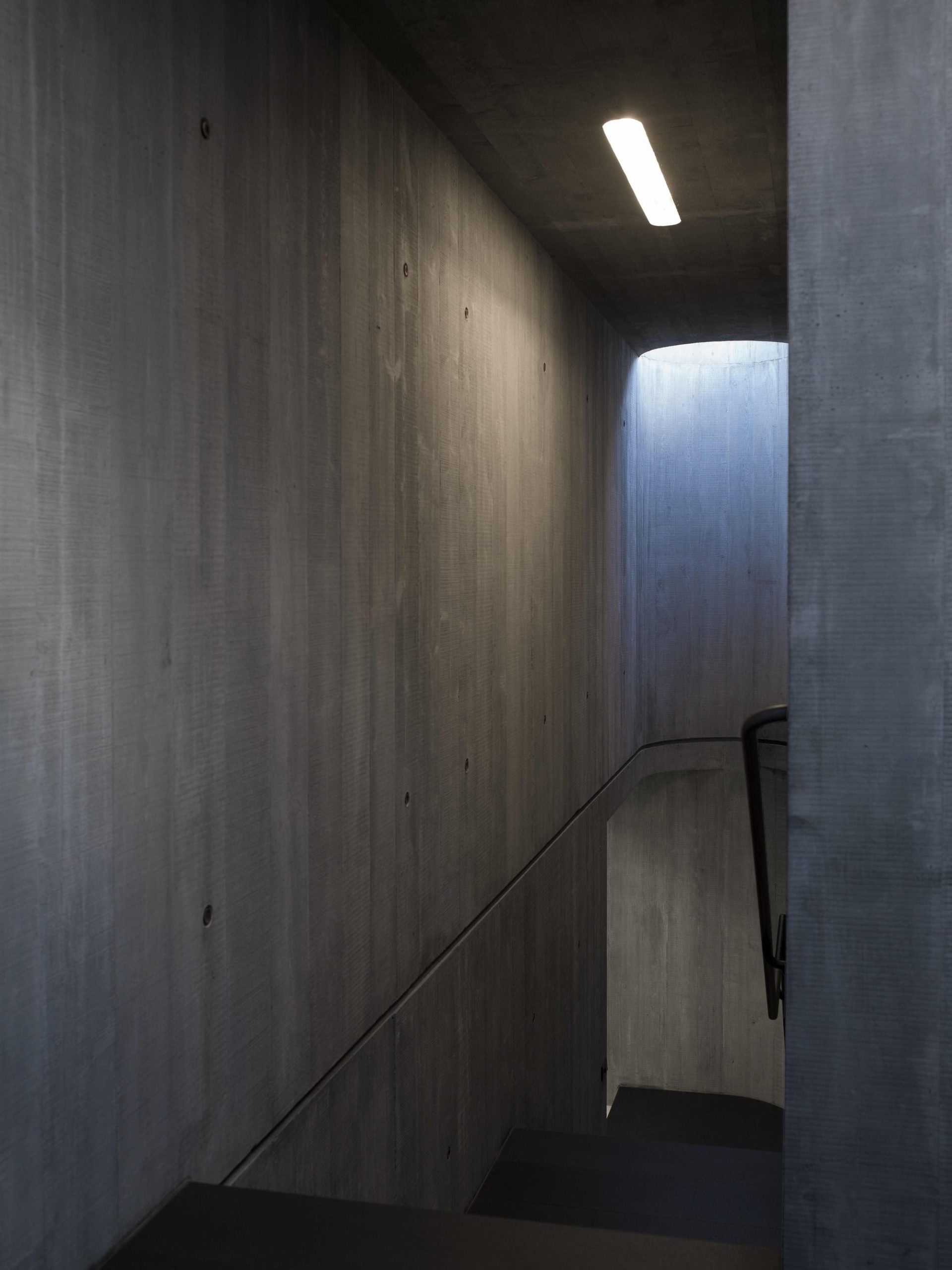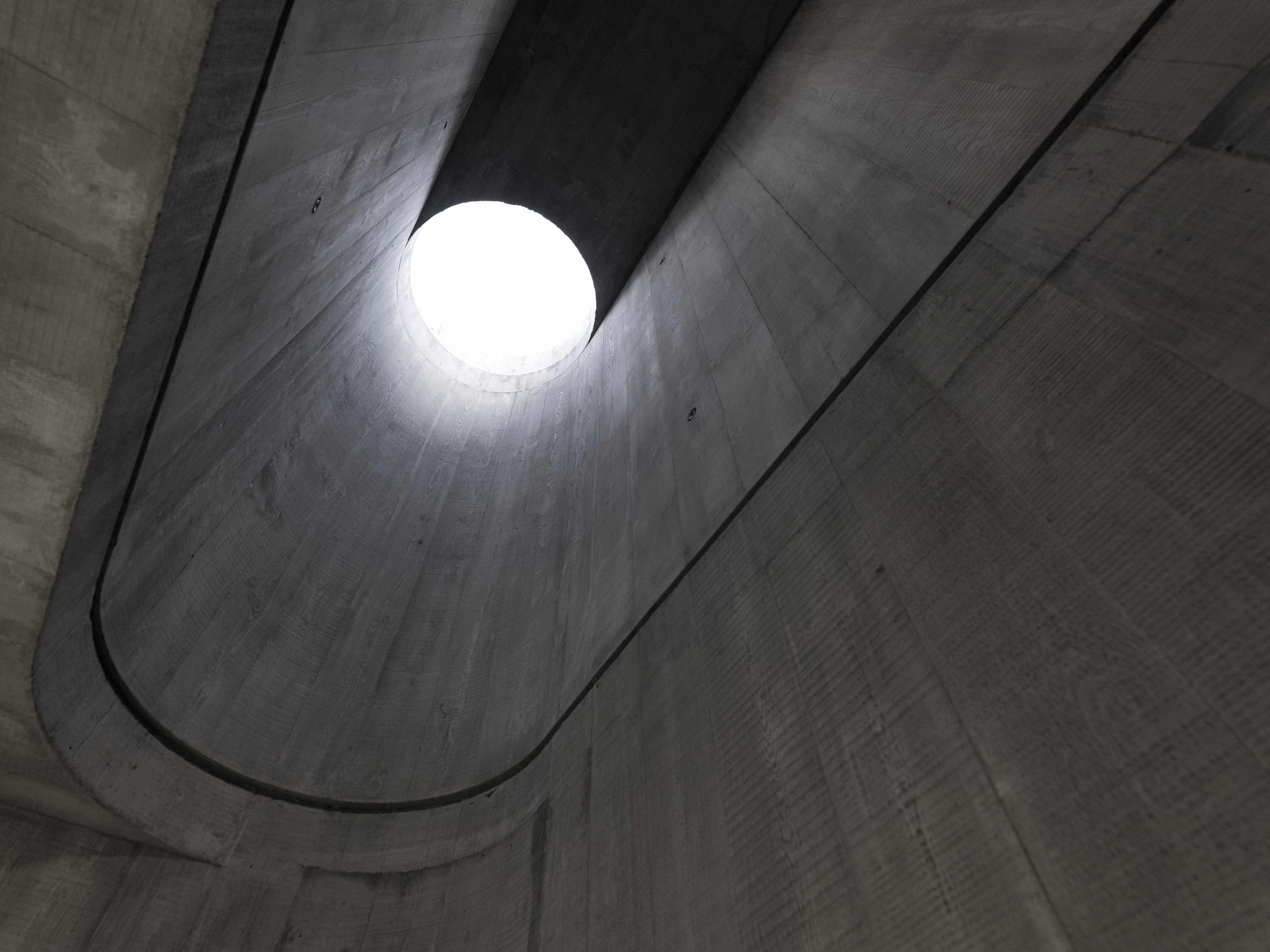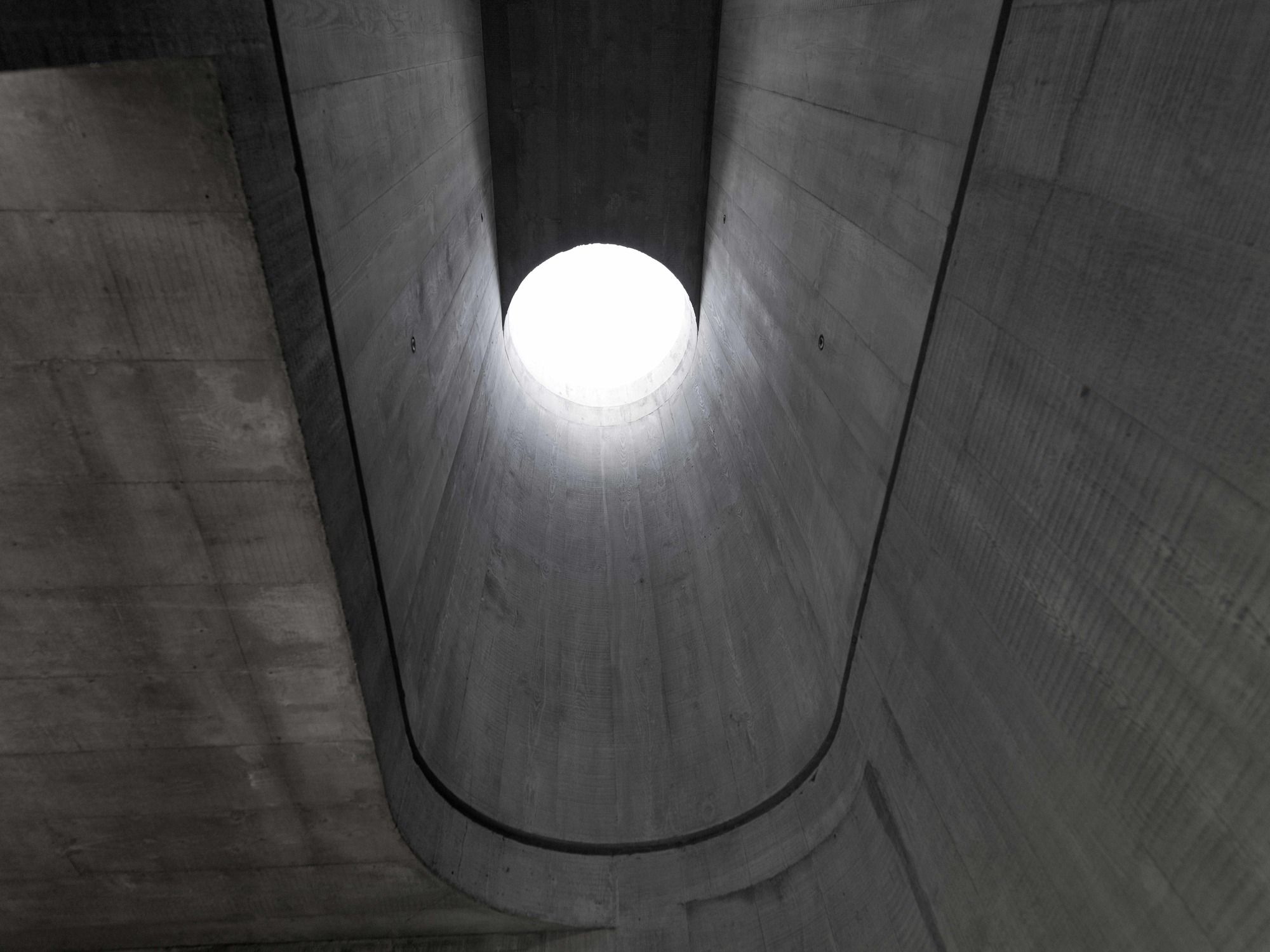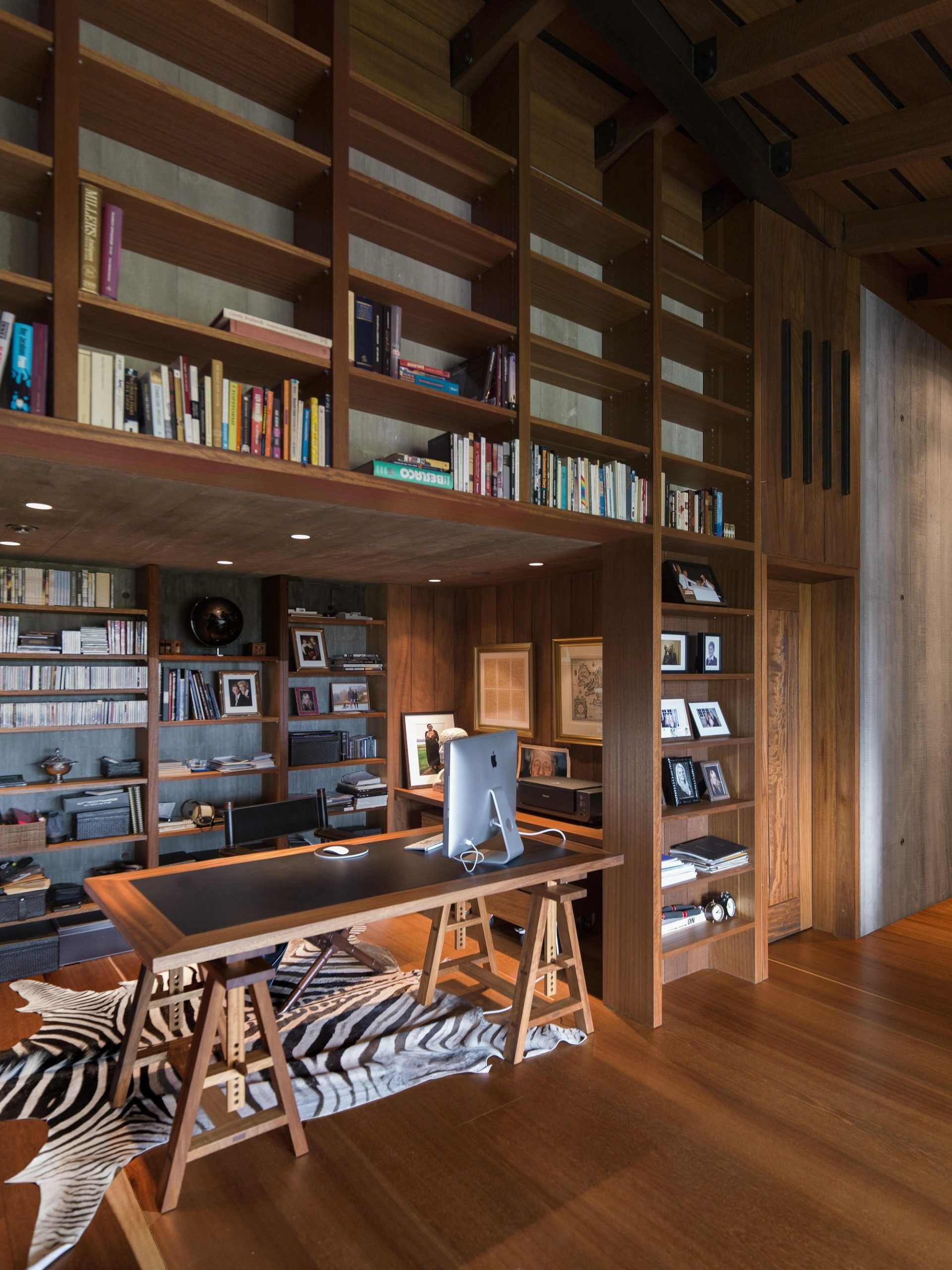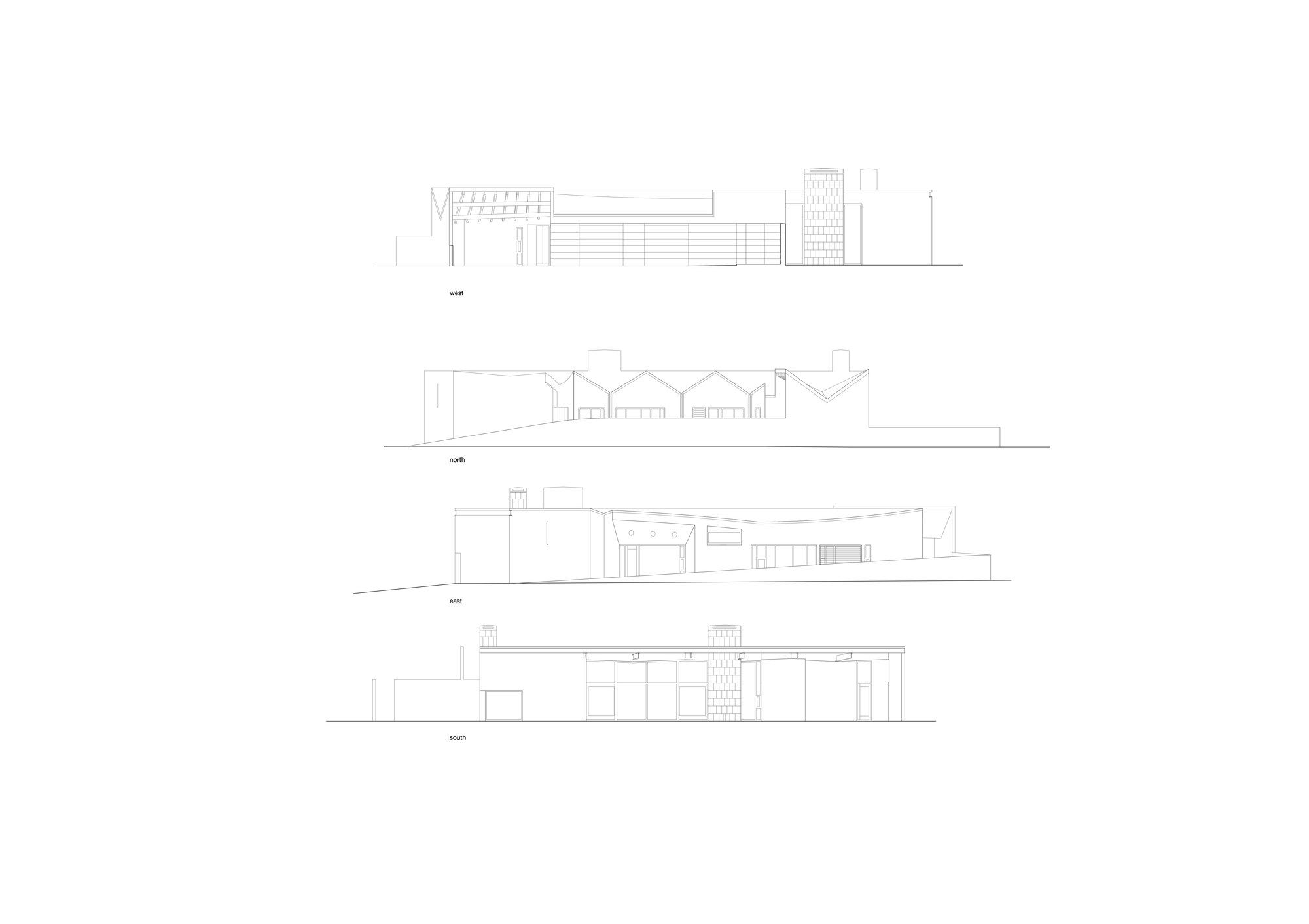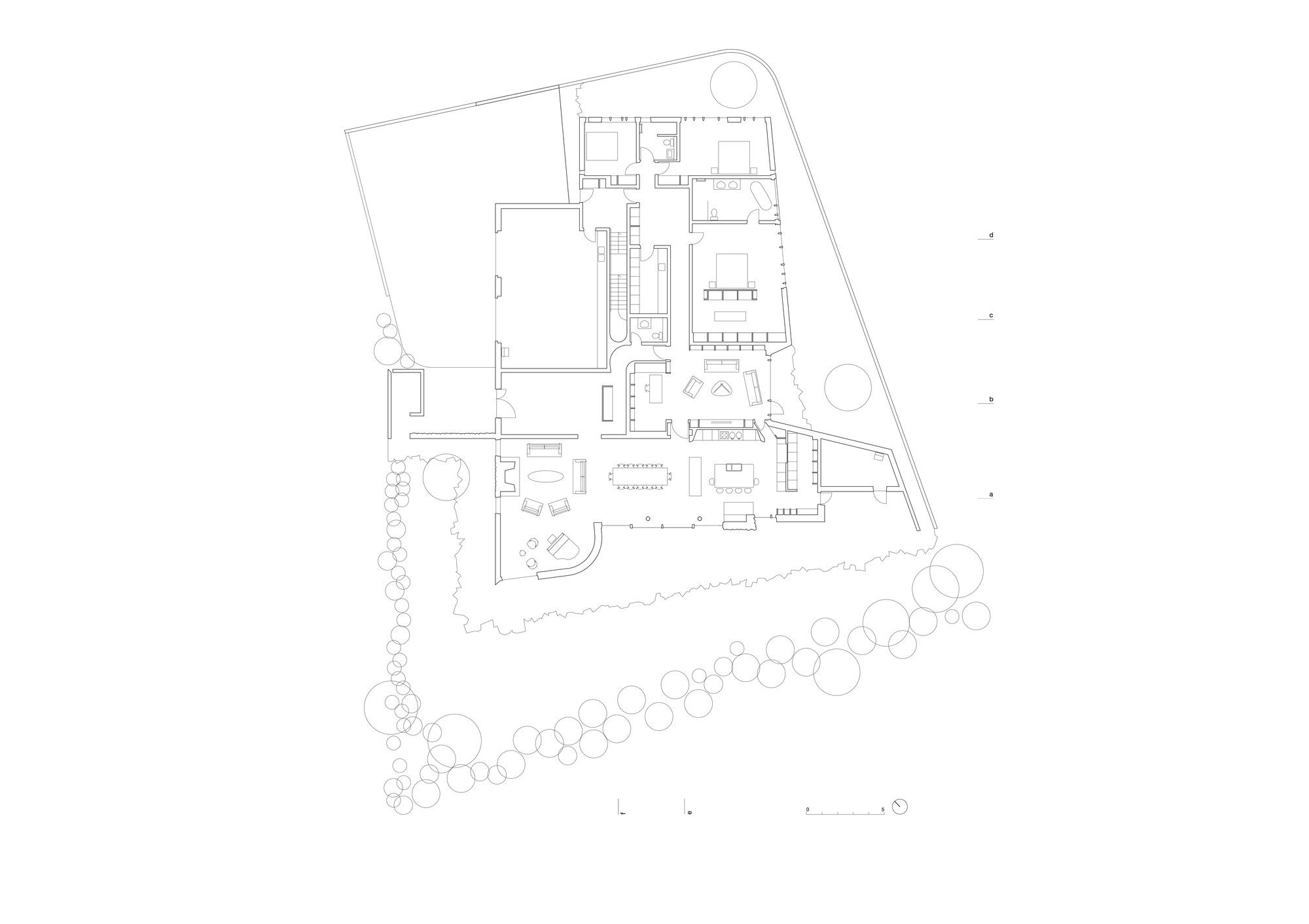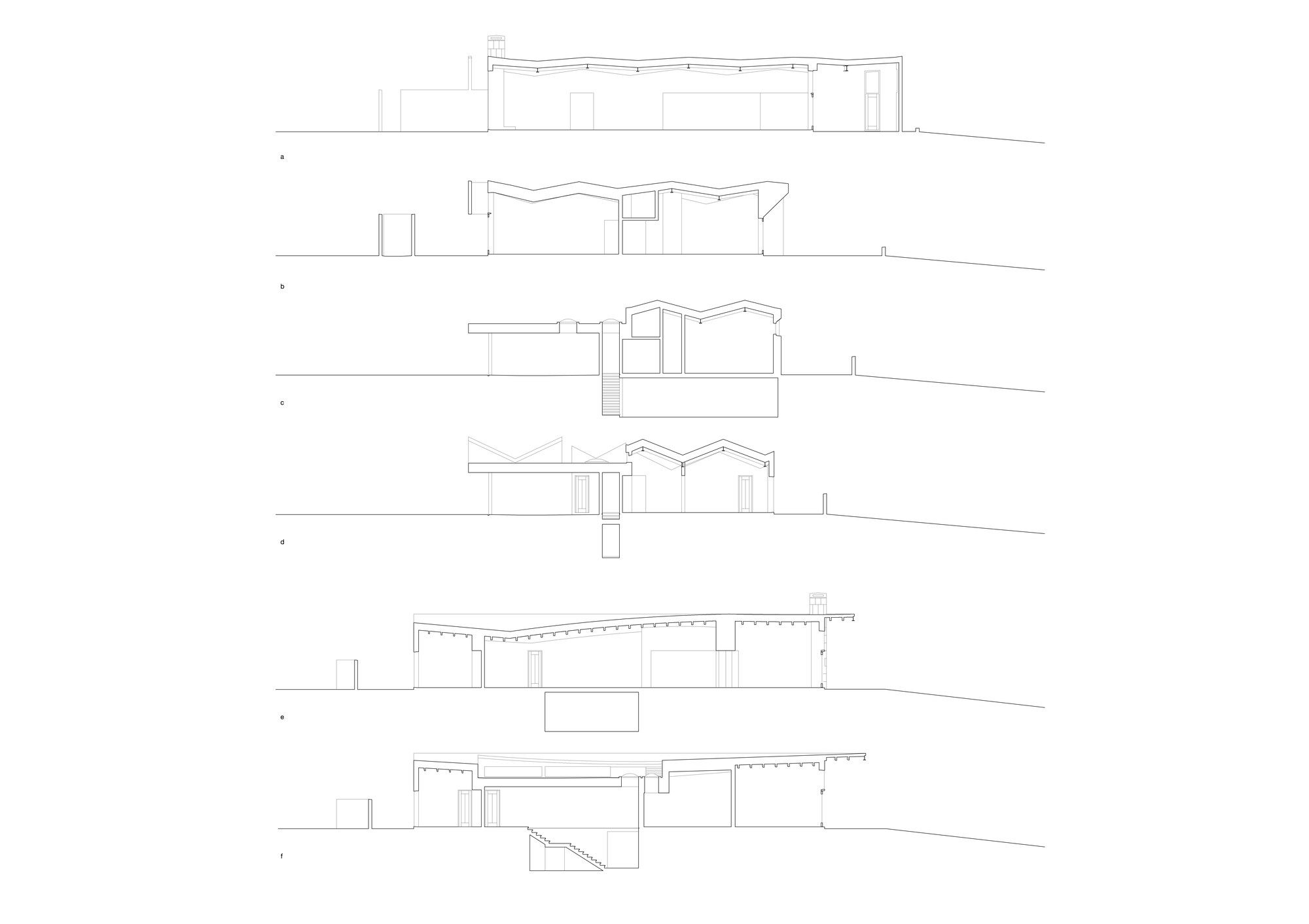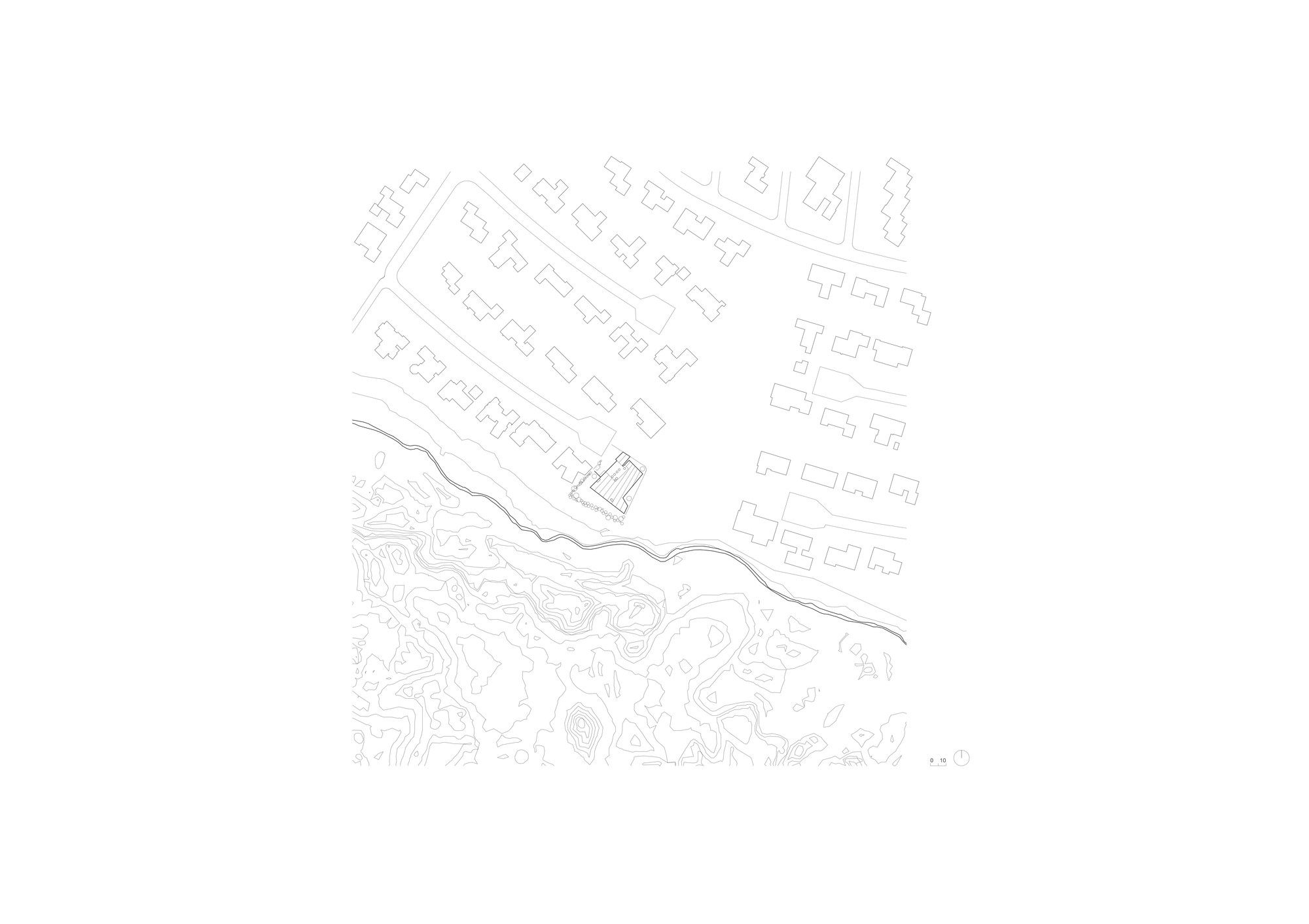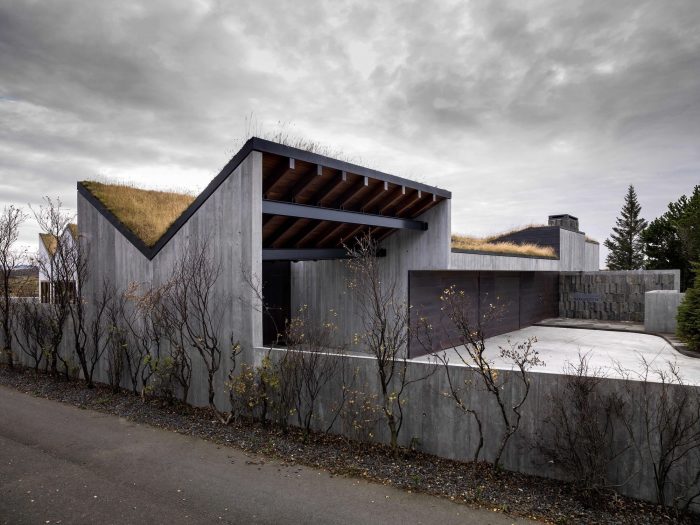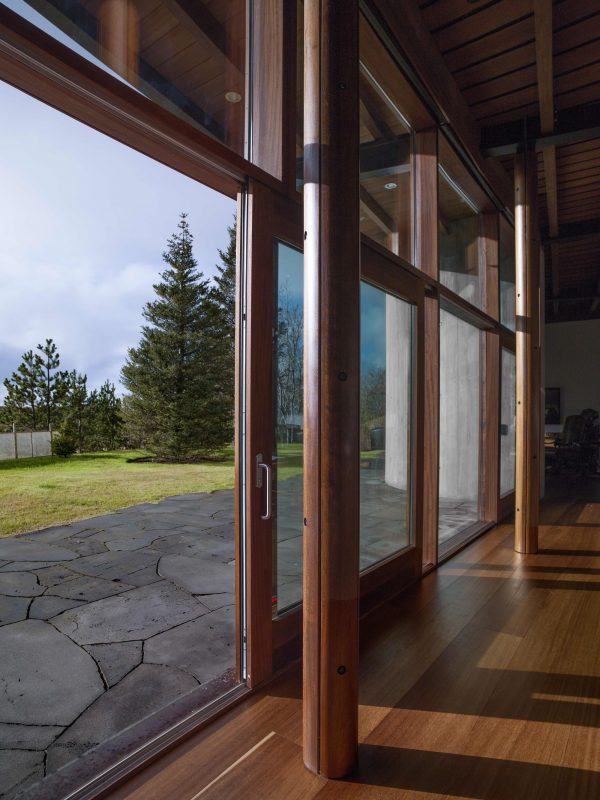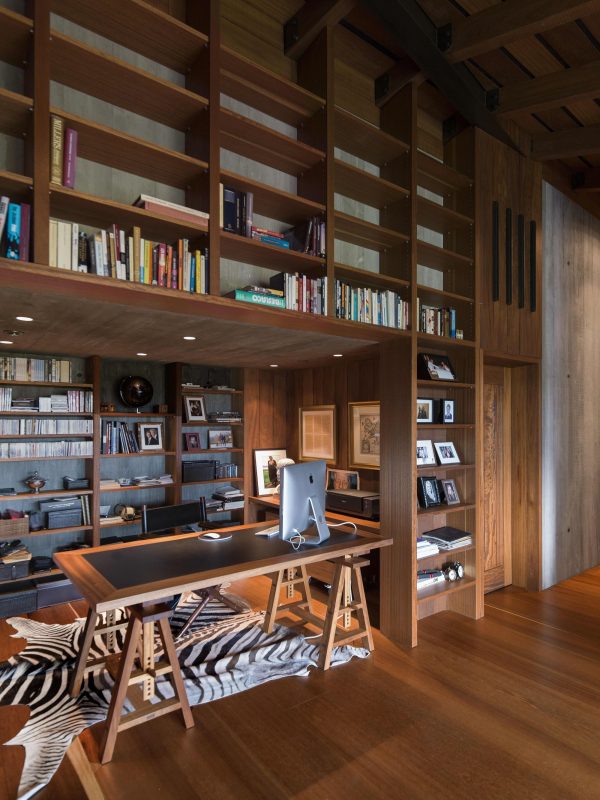Designed by Studio Granda, B14 is a villa on the southern periphery of a mature neighborhood. It borders a lava field and has long views to the Bláfjöll mountain ridge. Built on the site of the client’s previous house the foundation pad was garnered from the crushed concrete of the former dwelling. All other materials were sorted during the demolition process and recycled.
The site is trapezoidal in form, narrow on the north side and wide on the south. This simple geometry was the generator of the folded, fan-like roof that was to become so important for the design.
Within the house, the smaller, intimate spaces such as bedrooms, bathrooms and laundry room, are located towards the north beneath a series of pitched roofs. The family and workspaces are in the heart of the building and along the south face, under a gently rippling roof, are the living, dining and kitchen areas with open fireplaces at each end.
Parallel to these spaces is the sky lit garage and the entrance lobby cum gallery that is only white painted room in the house. Elsewhere the palette is primarily in-situ concrete, Kampala timber, and structural steel beams. Special surfaces are of polished black granite, Calacatta, Arabescato, and Nero Marquina marble. Buried in the depth of the plan is a stair of sawn basalt illuminated by a solitary skylight. It leads down to a workshop and store.
The B14 house is at the end of a cul-de-sac that terminates in the smooth concrete of the entrance yard. The dominant form is the inverted roof of the carport that sails over a long copper wall concealing the garage and main entrance door. The external walls are of the same in-situ concrete as the interior with the exception of a few planes of columnar basalt masonry. The roof is a landscape of wild grass and heather and rainwater trickles in the open copper channels between the northern gables.
All windows and door joinery are customs made of heavy section Kampala. Bathrooms are shielded with horizontal copper louvers and the full height windows of the south façade are shaded by a generous canopy. Two large sliding doors join the kitchen and dining room with this protected external space and the view over the lava field.
The former dwelling had a rich, mature, garden and this has been conserved as much as possible. Gaps in the planting were filled with relocated plants from the original garden and new species to balance the range and scale of flora. The paved areas were laid with irregular plates that were sliced from large basalt boulders. The hoggin in the gaps between the stone will encourage the growth of delicate mosses and lichens.
The house is primarily made of concrete and Kampala timber topped with grass. Concrete is one of the few indigenous building materials in Iceland. In the past, many kinds of wood were used as they washed ashore as driftwood. Traditional Icelandic houses were made of driftwood and turf.
Project Info:
Architects: Studio Granda
Location: Iceland
Area: 592 m2
Project Year: 2012
Photographs: Sigurgeir Sigurgeirsson
Project Name: B14
